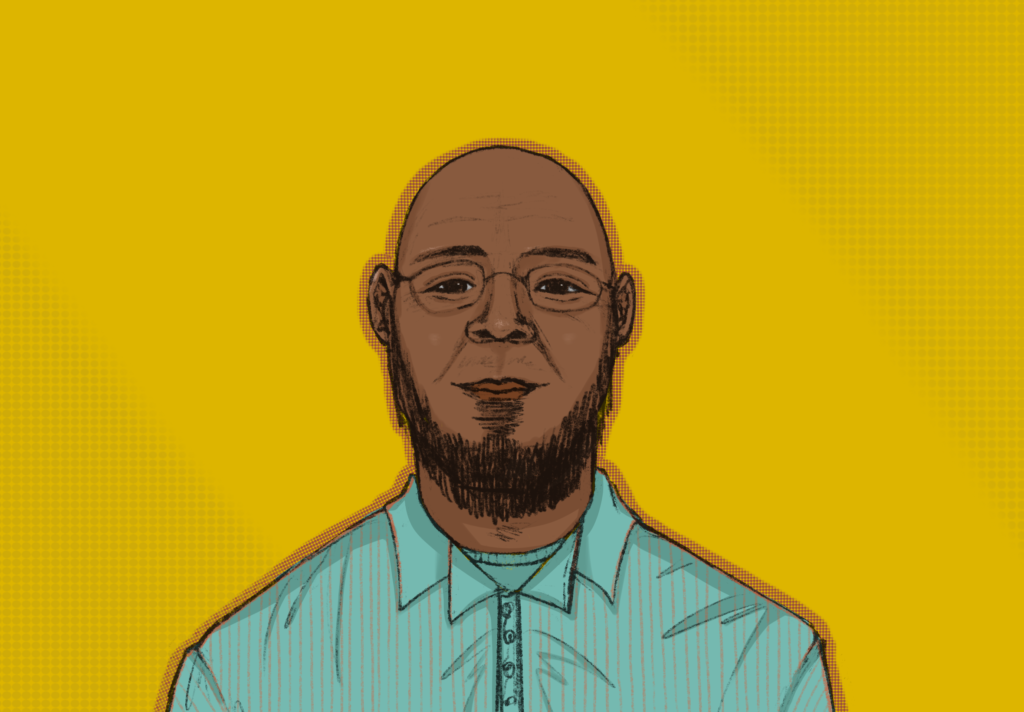
Graphic by Leah Han ’27/The Choate News
By Rachel Fan ’27 Copy Editor
Is the purpose of “justice” in the American court system to uncover the truth, or is it purely to determine a scapegoat to arrive at some form of result? Wrongful convictions are an American nightmare. According to the National Registry of Exonerations, innocent Black people are seven times more likely to be falsely convicted of murder than white people.
Given the measures taken in recent years to sustain the increasingly diverse community such as Equity Action Plans, you would think that there would be fre cases of undue death sentences as a result of racial bigotry. On the contrary, the same stodgy racial mindset has persisted.
I opened YouTube last week and came across video after video on the execution of Marcellus Williams, a 55-year-old Black man from Bonne Terre, Missouri. Williams was executed by lethal injection on September 24, having been sentenced to death in 2001 for the alleged 1998 murder of reporter Felicia Gayle. William’s mugshot was pinned in the forefront of every video, paired with large, bold fonts depicting phrases like “EXECUTED WITH DERISION,” “DISGUSTING INJUSTICE,” and “OUR COUNTRY FAILED HIM.”
Indeed, much evidence has supported his innocence in the 23 years spanning from conviction to execution. The current St. Louis County Prosecuting Attorney admitted that trial prosecutors had initially mishandled the murder weapon and that criminal DNA belonging to someone other than Williams was found at the crime scene — which, typically, clearly indicates an exoneration to be pursued. Still, prosecutors used peremptory strikes to purposefully exclude Black jurors from the trial based on race, which further contributed to the wrongful conviction; the United States Supreme Court, one of the last bodies that could have overturned Williams’ death sentence, declined to intervene the day before twwhe scheduled execution.
How does Williams’ case highlight the flaws of the modern incarceration system? Our appellate system is not designed to uncover factual errors, lies, and legal misconduct. Duke University Legal scholar Brandon Garrett explained that individuals proven wrongfully convicted through DNA testing often struggle to obtain relief. In rare cases where the defendant is offered freedom, it is at the cost of giving up legitimate legal claims. Such deals force the innocent to choose between falsely admitting guilt and facing more years in prison. Last month, in a bid to avoid execution, Williams accepted a plea for a life sentence without parole while maintaining his innocence, but the Missouri Supreme Court rejected it.
To address the deep flaws in our incarceration system, we need reforms that prioritize justice over convenience. Racial bias in jury selection, as seen in Williams’ case, must end; stricter oversight should prevent excluding jurors based on their race. Prosecutors should be held accountable for misconduct, and independent reviews must ensure that post-conviction relief is accessible, especially in cases where DNA evidence exonerates wrongfully convicted defendants. Additionally, plea deals that force innocent people to admit guilt must be curbed. Real accountability and transparency in the justice system are crucial to preventing more wrongful convictions.
The case of Marcellus Williams reveals a system marred by racial bias, legal misconduct, and a lack of accountability. Innocent lives, especially those of Black individuals, are destroyed by our system that prioritizes convictions over truth. By eliminating racial discrimination in trials, holding prosecutors accountable, and creating real pathways to exoneration, our legal process no longer perpetuate injustice. So, let me ask this question again: is “justice” a beam of irreversible, harsh “righteousness,” or is it a word coined to shroud violence built on ideals of bigotry?




